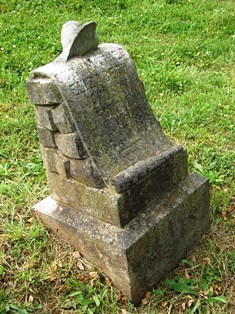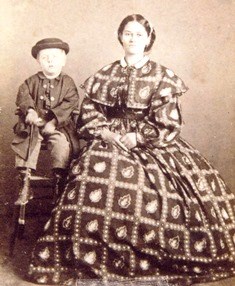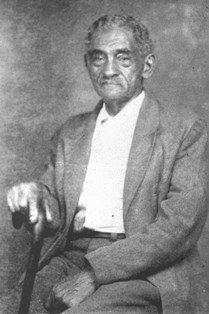
NPS Photo Liz Johnson was Dolly's oldest daughter. Although we know of no image for Liz, we do know that she married George Forbey, a Greeneville farmer. He had been a former slave of Dr. John Shields of Timber Ridge. The couple had nine children: Tilman, Lillie, Beth, Nellie, George, Samuel, Dollie, Mary Belle, and Charles.
"In 1875 Lizzie and some of her children were living with Mary Stover Brown in Carter County, perhaps to help take care of Eliza Johnson, who was also staying at Mary's farm." (Andrew Johnson Biographical Companion, pg. 270). By 1900 the family moved to Knoxville to seek better opportunity for jobs. By 1920, George and a few of his children moved to St. Louis, Missouri to work for the railroad.
Mary Johnson Stover willed "one Lizzie Forby some land next to that occupied by Samuel Johnson" in 1883.
Liz is buried in the Knoxville College Cemetery, Knoxville, TN. Florence and William may be buried there as well, but their graves are not marked.

NPS Photo Florence Johnson Florence Johnson, Dolly's second daughter, accompanied the Andrew Johnson family to the Executive Mansion. She married Henry Smith in 1874. They had four children: Edgar, Andrew and Bonnie (twins), and Mabel. She moved to Knoxville, TN, and her obituary states that: Her home was a mecca for visitors, many well known Knoxville people taking their out-of-town visitors there to "hear the wonderful tales of the old South 'Aunt Florence' could relate." (Quote from her obituary) 
NPS Photo William Johnson was Dolly's youngest son. William Johnson revealed that after Andrew Johnson returned from Washington, "I was with him all the time. I slept right in the same room with him" (Nichols, Ernie's America, pg. 305). He and his mother lived in Andrew Johnson's former Tailor Shop and baked and sold pies there.William eventually became a well-known cook in Knoxville, TN. He claimed he had learned to cook by the side of his mother and Mrs. Johnson.
One of the crowning moments of William Johnson's life was a trip to Washington, D.C. where he met President Franklin Delano Roosevelt, who gave him a silver-tipped cane. William perhaps summed things up the best. When Ernie Pyle asked him "if he wasn't better off when Andrew Johnson owned him than since then," William answered, "Yes, we were mighty well off then. But any man would rather be free than be a slave" (Nichols, Ernie's America, pg. 305).

NPS Photo |
Last updated: March 24, 2022
